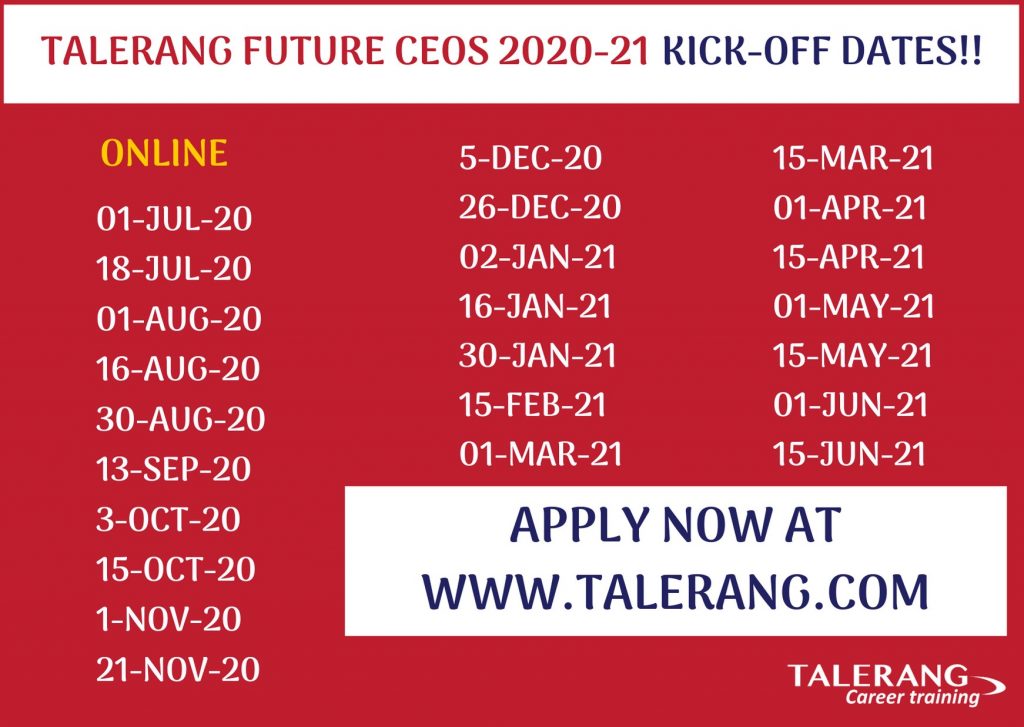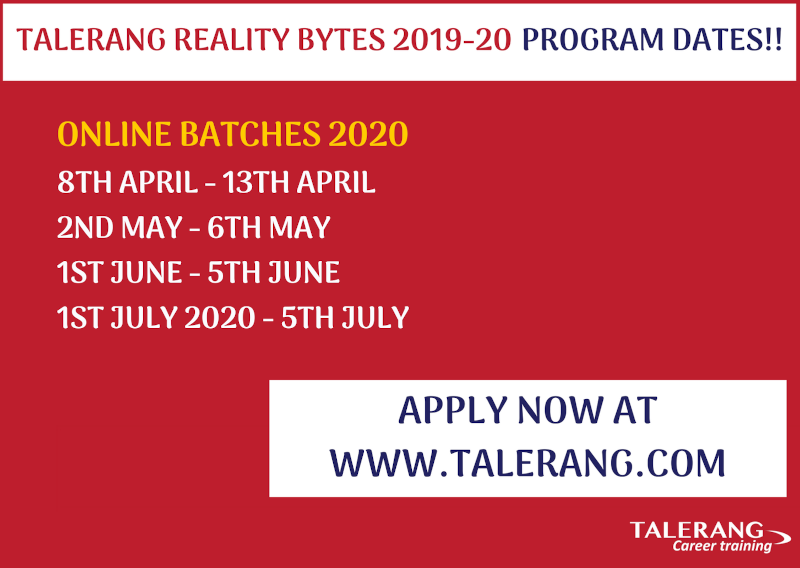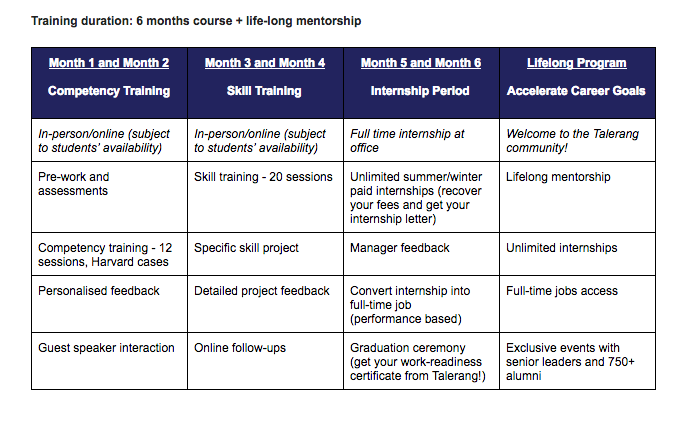The Challenge Of The Year – MCC!

The Model Career Competition is Talerang’s flagship event for young minds to learn and showcase their problem solving skills. Designed to resemble a MUN, but in a corporate style, the latest edition of the MCC revolved around the idea of innovation and how it helps organisations make the best of their resources.
The event started out with an icebreaker activity, followed by the panelists setting the tone for the event by initiating thought provoking discussions around the theme of innovation, design thinking, and their practical implications in the corporate context. .
This MCC focused on a Harvard style case study about Apple, wherein the students were given the opportunity to analyse its astronomical rise, its culture, how it promotes innovation, its execution strategy, and its points of vulnerabilities.
This year the students solved the case study of Apple!
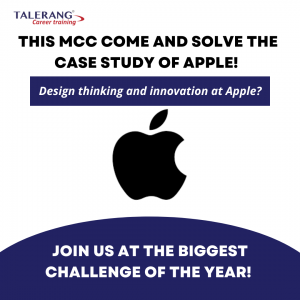
With this discussion serving as the base, the students were then guided into a simulation where they got to be employees of Apple, working in different committees: finance, marketing, operations, product, and people. The group was given a challenge to solve – to come up with a clean and green product to pioneer Apple’s sustainability initiative. The challenge was two pronged – students collaborating with their fellow committee members, and simultaneously, all committees working in tandem to present one unified solution to the judges.
The panel of judges was a group of marquee industry leaders as well as Talerang’s seniors:
- Ankit Samdariya – Head of Asset Management, LOGOS Group
- Pooja Aggarwal – Head of Operations, Mumbai, Schindler Group
- Shveta Raina – Founder and CEO, Talerang
- Aishwariya Chauhan – Director, Student Engagement, Talerang
The criteria of judgment included the feasibility, innovation, and the presentation of the solution devised by each committee, and all six committees understood the brief spot on and brought excellent ideas to the table. Some of the key questions they tackled were: What would the new “clean and green” Apple product be? How would the raw materials be sourced so as to fit into the context of sustainability? What would be the implications on the company’s bottom line in the near and long term future? How would the new resources be funded? What would be the best go-to-market strategy for the new product? How would the firm evolve in terms of attracting new talent? In the words of one of the panelists, it was mesmerizing to see how well the students worked together to come up with wonderful insights and brilliant ideas for a complex business like Apple’s.
Each committee’s solution to the challenge was elaborate and well-deliberated in isolation, but the true challenge was to see if all the individual plans would work well as a whole, which was tested by the panelists’ questions. While the questions posed were objective and based in real-world experiences, the young delegates answered them all gracefully and with unwavering confidence.
There were several prizes up for grabs at the end of the challenge, ranging from cash prizes, redeemable Talerang credit, a mentorship session with a member from Talerang’s Young Leaders Panel, and the chance to get featured on Talerang’s social media handles and its corporate newsletter. All the delegates played their part extremely well, but there were a few who outshone the others, and were duly rewarded for their performance:
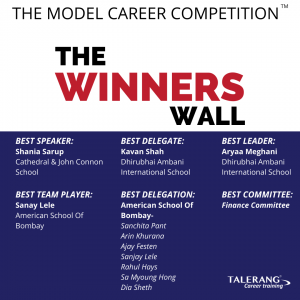
In addition the winners listed above, some delegates also garnered special mention for their outstanding performance:
- Aditi Narwal – Mount Carmel College
- Sanchita Pant – American School of Bombay
- Vrinda Bhatija – Cathedral and John Connon School
Like any other competition, this one too had winners, but in the words of panelist Shveta Raina, the exercise was more of an opportunity for young minds to understand the nuances of working in a group to come up with practical solutions, and most importantly, it was about learning from each other.
The key takeaways for the group were the importance of working well with others, the benefits of thinking critically and the need to adapt with one’s environment. While the challenge was to test the students’ current skill set, it also provided them with a window into how Talerang frames its curriculum to center around the practical skills and techniques one needs to grow professionally.

